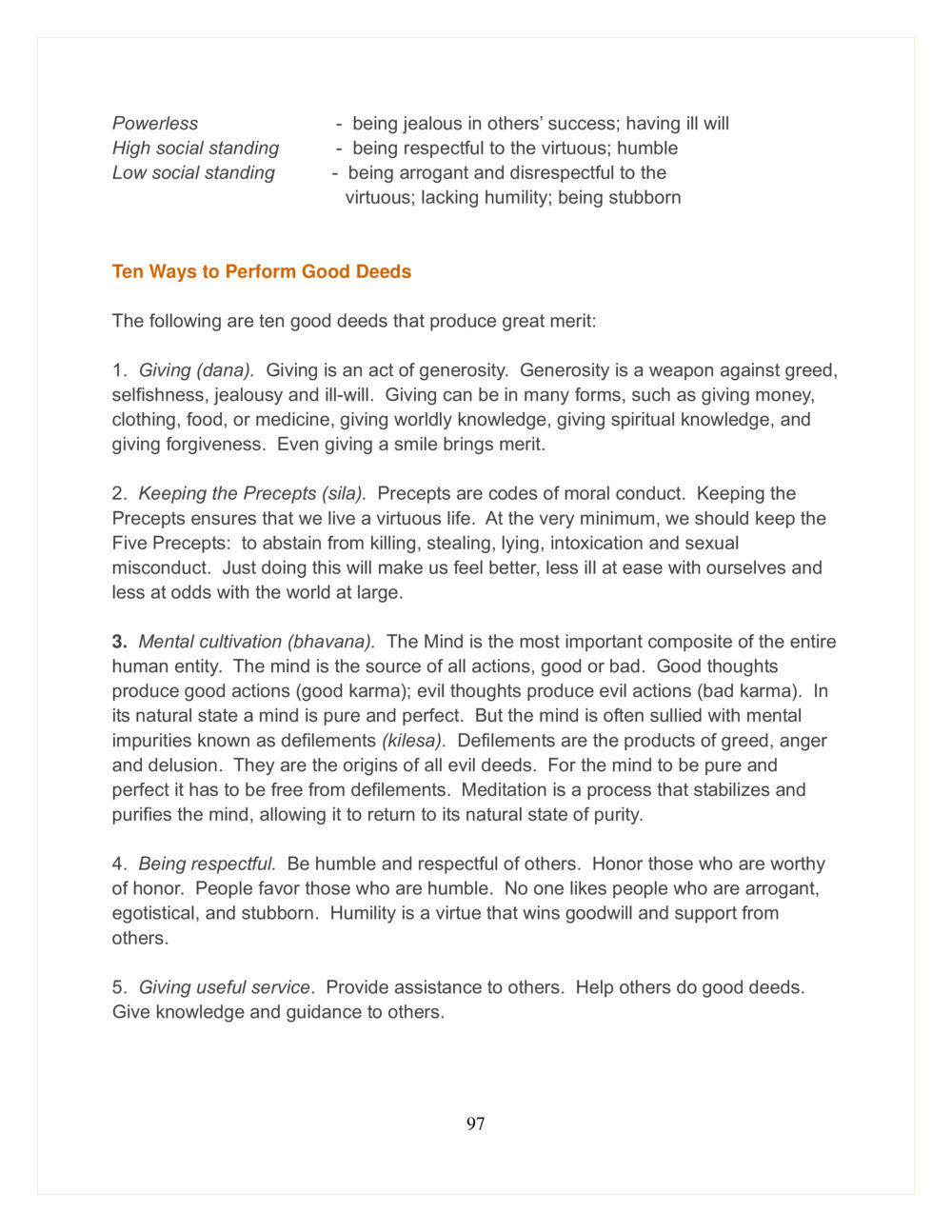Ten Ways to Perform Good Deeds : หน้า 97/115
DMC Translor’s handbook : หน้า 97/115 Explore ten impactful good deeds that promote generosity, respect, and mental cultivation, contributing to a virtuous life.
1 ครั้ง

สรุปเนื้อหา
This text outlines ten good deeds that enhance merit, including acts of giving, adherence to moral precepts, and mental cultivation through meditation. It emphasizes the importance of generosity in combating negative emotions like jealousy and greed. Keeping the Five Precepts not only improves personal well-being but also fosters a harmonious relationship with the world. Humility and respect for others are highlighted as vital attributes that garner goodwill, and offering assistance to others can multiply good actions. These principles create a pathway to a virtuous and fulfilled life. For more insights, visit dmc.tv.
หัวข้อประเด็น
-Generosity
-Moral conduct
-Mental purity
-Humility
-Service to others
ข้อความต้นฉบับในหน้า
Powerless - being jealous in others' success; having ill will
High social standing - being respectful to the virtuous; humble
Low social standing - being arrogant and disrespectful to the virtuous; lacking humility; being stubborn
Ten Ways to Perform Good Deeds
The following are ten good deeds that produce great merit:
1. Giving (dana). Giving is an act of generosity. Generosity is a weapon against greed, selfishness, jealousy and ill-will. Giving can be in many forms, such as giving money, clothing, food, or medicine, giving worldly knowledge, giving spiritual knowledge, and giving forgiveness. Even giving a smile brings merit.
2. Keeping the Precepts (sila). Precepts are codes of moral conduct. Keeping the Precepts ensures that we live a virtuous life. At the very minimum, we should keep the Five Precepts: to abstain from killing, stealing, lying, intoxication and sexual misconduct. Just doing this will make us feel better, less ill at ease with ourselves and less at odds with the world at large.
3. Mental cultivation (bhavana). The Mind is the most important composite of the entire human entity. The mind is the source of all actions, good or bad. Good thoughts produce good actions (good karma); evil thoughts produce evil actions (bad karma). In its natural state a mind is pure and perfect. But the mind is often sullied with mental impurities known as defilements (kilesa). Defilements are the products of greed, anger and delusion. They are the origins of all evil deeds. For the mind to be pure and perfect it has to be free from defilements. Meditation is a process that stabilizes and purifies the mind, allowing it to return to its natural state of purity.
4. Being respectful. Be humble and respectful of others. Honor those who are worthy of honor. People favor those who are humble. No one likes people who are arrogant, egotistical, and stubborn. Humility is a virtue that wins goodwill and support from others.
5. Giving useful service. Provide assistance to others. Help others do good deeds. Give knowledge and guidance to others.
หน้าหนังสือทั้งหมด
หนังสือที่เกี่ยวข้อง
Load More



















































































































